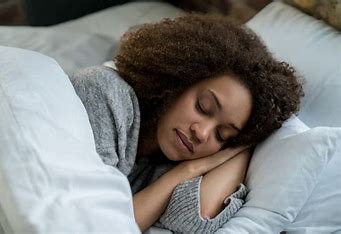
To fix your sleep schedule, establish a consistent bedtime, limit screen time, and create a relaxing pre-sleep routine.
What is the purpose of sleep?
The purpose of sleep is multifaceted, performing essential functions for physical and mental health.
It facilitates the body’s repair process, supports cognitive functions such as memory consolidation and learning, and regulates mood and emotional stability.
Sleep also plays a critical role in maintaining metabolic health and immune function.
By allowing the mind and body to rest and rejuvenate, sleep is essential for overall well-being and optimal daily performance.


How to fix your sleep schedule?
Rest is a condition of relaxation, and this article outlines how to modify your sleep routine.
Most of the muscles that animals and humans can control are not active during deep sleep, but they regain their energy when they wake up.
Humans and other mammals require consistent sleep for their survival.
The majority of individuals are awake during daylight hours when the sun is shining.
They work, go to school, or do daily activities.
What is a nap?
A nap is when individuals take a brief sleep in the early afternoon due to their inability to rest during the day.
An effective nap should range from fifteen to thirty minutes, while longer naps should last from 30 to 60 minutes.
Sufficient sleep is essential for both the body’s and mind’s health to function correctly.
FIX YOUR SLEEP SCHEDULE.
Different types of sleep.
Mammals and birds have two different categories of sleep.
Non-REM sleep and rapid eye movement (REM) sleep.
1. Non-REM sleep.
2. REM (rapid eye movement).
Detail about two kinds of sleep.
1. Non-REM sleep.
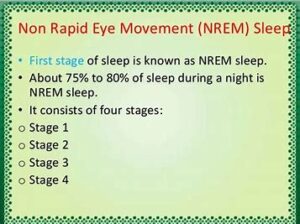
NREM sleep is the other category where the eyes do not move.
Dreams do not come during this time.
There are four stages of non-REM sleep.
Stage 1:
The process of falling asleep is called NREM (Non-Rapid Eye Activity) sleep.
The lightest sleep is called NREM.
Stage 2:
The start of sleep includes regular breathing and heartbeats, a drop in body temperature, and disconnection from the environment.
Stage 3:
During NREM stage 3 sleep, deep and slow waves enter the body called delta waves.
It is hard to wake up in this stage because you are in a deep sleep.
Sleepwalking and sleeptalking are disorders that occur during this stage.
Stage 4:
Brain waves are more vigorous in the dreaming stage.
Your voluntary muscles are activated when your brain awakens from the fourth stage of REM sleep.
Your brain takes this opportunity to encode the information into memory.
2. REM (rapid eye movement).
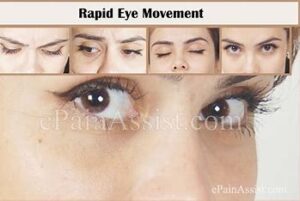
In REM sleep, there are more awakenings than in NREM.
The eyes move quickly in this category.
During rapid eye activity relaxation, a person’s brain function, breathing, heart rate, and blood pressure increase, and the eyes move faster when closed.
The eyes move while sleeping.
Most dreams take place in this phase.
REM sleep occurs intermittently throughout the night.
In the second half of the night, the periods of REM sleep increase.
Generally, this happens every 90 minutes after going to bed.
Get enough sleep and fix your sleep schedule.
People who sleep less than 8 hours a night complain more and feel tired throughout the day.
In other words, insufficient sleep can affect one’s body and increase the chances of significant health problems.
In general, the recommended amount of sleep varies for each age group.

1. For babies aged four to twelve months, 12 to 16 hours of sleep.
2. For toddlers one to two years old, sleep is between 11 and 14 hours.
3. Children aged three to five years sleep 10 to 13 hours.
4. Graders are six to twelve years old, sleeping 9 to 12 hours.
5. Teenagers are 13 to 18 years old, sleeping 8 to 10 hours.
6. Adults, including the elders, sleep period is from 7 to 9 hours.
SOME BAD HABITS DISTURB SLEEP.
1. Overeating or being too full.

Overeating will not work the digestive system.
2. If a person is sitting in front of a TV.
The TV’s powerful light source can prevent sleep.
3. Too much drinking.
It will cause one to use the bathroom multiple times during the night.
4. Picking up the mobile phone or playing a video game.
The artificial light from the screen makes the mind and body feel good.
5. Back, joint, tooth pain, or any other pain.
These can make sleeping difficult.
6. Feeling cool in feet.
Feeling cold in your feet will disturb your sleep. So, it’s better to wear something to keep warm.
7. Using caffeine.
Caffeine affects the nervous system and causes insomnia.
8. Being stressed.
Since it keeps the brain active at night, one can think of all things on their mind.
Because it keeps the mind active during the night, one can think about all the main things on one’s mind.

9. Snoring.
It can wake you up.
In short, bad habits can affect one’s sleep schedule without even noticing.
Leave them to fix your sleep schedule.
There are four most common sleep disorders.
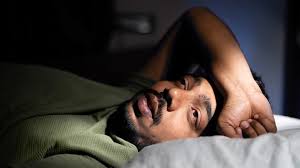
1. Insomnia.
Insomnia consists of difficulties when going to sleep at night, lack of energy, waking up often in the middle of the night, waking up earlier than planned, and changing mood habits.
2. Sleep apnea.
Not breathing for several seconds wakes up the mind and results in difficulty breathing.
The body can’t go back to sleep due to multiple occurrences during the night.
3. Restless leg syndrome.
Need to move the leg while resting.
The urge to move the legs at night can affect the ability to fall and sleep.
4. Narcolepsy.
Narcolepsy is a sleep disorder. This sleep disorder makes them sleepy during the day.
Addicted people find it challenging to wake up for extended periods.
Suddenly, they fall asleep.
Therefore, it can cause many problems.
In short, the failure of the brain to regulate the sleep-wake cycle leads to daytime sleepiness and falling asleep at unexpected times.
People with sleep problems should practice good sleep hygiene, as outlined below.
1. Fix a good sleep schedule to help you sleep better.
It’s called sleep hygiene.
Setting a regular bedtime is essential to a good sleep routine.
Getting up at fixed times is a good sleep habit.
Generally, it’s best to have the same sleep routine every day.
2. Relax, unwind, and try sleep meditation.
In meditation, a person focuses on something, such as an object, word, phrase, or breathing, to reduce distractions or stress.
Meditation can help relax the body.
Your sleep routine starts before you get to bed, so build in time to relax.
It’s a good idea to avoid mobiles, tablets, and computers at least an hour before bed because they emit blue light that stops sleep.
Listening to soft music or reading can help you sleep.
3. Try mindfulness for sleep.
Stress, anxiety, and worry can affect our sleep.
It’s possible to manage your worries by talking to someone you trust or writing in a notebook.
Setting aside time before bed to create a to-do list for the next day can help you relax your mind.
It might be possible to use techniques like reframing unhelpful thoughts.
4. Create the right sleep environment.
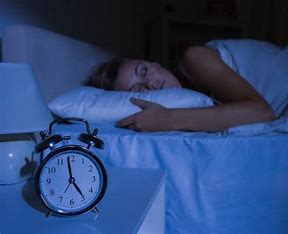
Although the best sleeping environment is personal, try several things and see what works for you.
It’s usually easier to fall asleep when it’s dark and quiet.
It’s generally easier to fall asleep when it’s quiet, dark, and refreshing.
Silence is golden when it comes to sleep for many of us, so wearing earplugs and putting your phone on silent (or out of the room entirely) can keep things quiet.
You can use curtains or blinds to keep the room dark and avoid unwanted light.
Make sure your room is the right temperature and well-ventilated, as a cool room is usually better to sleep in than a hot or stuffy one.
Ambient sounds like rainfall or gentle music can help people sleep.
5. Do not force sleep.
If you’re lying awake and unable to sleep, do not try to force it.
Later sleep may naturally take over if you’re exhausted and feeling rested.
But if you cannot sleep, get up and sit in a comfy place and do something relaxing, like reading a book or listening to quiet music.
Return to bed when you feel sleepy.
6. Improve sleep through diet, exercise, and fixing sleep schedule.
A good diet and regular physical exercise can help us relax and sleep better. An unbalanced diet and lack of exercise can prevent us from getting good sleep.
Avoid eating large meals close to bedtime.
If possible, also try to avoid caffeine (like coffee), alcohol, or nicotine at bedtime, as these are stimulants that make us more alert. Stimulants are a common cause of sleep problems.
One to two hours before bed, avoid substances.
Try it and see if things improve.
Regular exercise can induce sleep, but if you observe that it keeps you awake, avoid anything 90 minutes before bed.
FOOD TIPS TO FIX BETTER SLEEP SCHEDULE.
We don’t think about the effects food has on sleep.
Food can affect our sleep patterns.
Some foods help you sleep, and some foods keep you awake.
1. STOP LATE DINNERS AND LATE-NIGHT SNACKS.
Is eating before bed bad?
Yes, eating before bed can hurt your sleep, and for a few reasons:
It stimulates the release of insulin.
Insulin is a hormone that helps in converting food into energy.
So, eating late increases insulin production, which throws off your sleep-wake cycle.
It can cause acid reflux problems and lead to insomnia.
Similarly, lying down right after eating can cause your stomach contents to back up into your esophagus, which can cause heartburn at night.
You force your digestive muscles to keep functioning.
If your muscles are busy instead of relaxing, you may have a delay in falling asleep.
If you want a better night’s sleep, stop eating at least two hours before bedtime.
Ensure you eat an adequate amount earlier in the day to prevent late-night cravings.
2. AVOID DRINKING LIQUID BEFORE YOU GO TO BED.
It’s required to stay hydrated throughout the day, and it’s also needed to lower your liquid consumption before bed.
You may wake up in the middle of the night because you have to urinate if you drink fluids before bed.
It can disrupt your sleep cycle and even cause sleeping disorders.
As with food, it’s best to limit your fluid intake at least two hours before bed.
3. STOP DRINKING CAFFEINE AT NIGHT.
Because high levels of caffeine are a stimulant, it can make it difficult to fall asleep if consumed later at night.
It delays your circadian rhythm.
4. NO SPICE AT NIGHT.
Studies show that spicy foods can affect sleep quality.
Two reasons.
- They can cause problems like indigestion, heartburn, and acid reflux.
- They can raise your body temperature.
5. EAT FISH FOR GOOD SLEEP.
Omega-3 fats in fish can increase the production of the sleep-regulating hormone melatonin.
Also, you can take fish oil supplements if you don’t want to eat fish.
6. ENJOY A GLASS OF CHERRY JUICE.
Tart cherry juice contains two sleep-inducing chemicals (procyanidins and anthocyanins).
Adding cherry juice to your diet will help you sleep better.
7. EAT A BANANA FOR BETTER SLEEP.
Bananas are a great source of sleep for a few reasons.
Bananas are an exceptional source of magnesium and potassium that help relax overstressed muscles.
You might be able to fall asleep faster if you eat a banana before bed.
The presence of tryptophan stimulates important brain-calming hormones.
They also contain essential tyrosine to stimulate the production of these necessary brain-calming estrogens.
1. Potassium and Magnesium.
Potassium and magnesium are muscle-relaxant minerals that aid in sound sleep.
2. Tryptophan and Melatonin.
Both help with better sleep because tryptophan (an amino acid) converts serotonin and melatonin.
8. STOP SMOKING.
Certainly, nicotine is a stimulant that can affect sleep patterns and cause insomnia.
It increases heart rate and alertness, which is not conducive to sleep.
Smoking increases the risk of sleep deprivation and snoring.
9. FIX SLEEP AND WAKE SCHEDULE.
For a good life, it’s crucial to maintain regular sleep-wake times.
It allows your body to make hormones (melatonin and serotonin) at the right time.
Uneven sleep patterns can trigger troubles such as circadian rhythm problems.
Set an alarm to remind you when to sleep.
10. SET AN ALARM TO REMIND YOU WHEN TO SLEEP.
Setting an alarm to wake you up is a great way to start the night.
11. KEEP THE ALARM DEVICE AWAY FROM YOU.
It’s harder to fall asleep if you stare at the clock.
Sleep is a state of resting.







